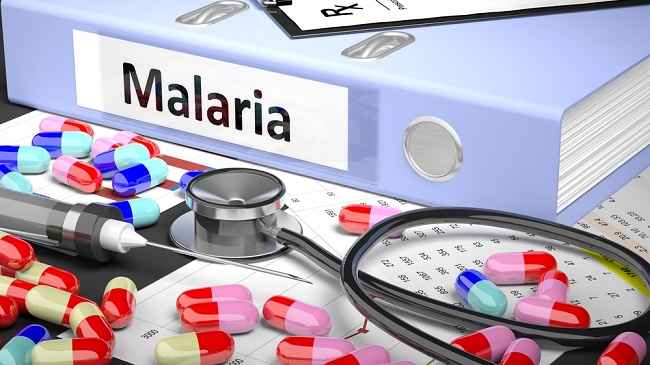Medication for Preventing Malaria and How to Use It
There are several drugs that can be used to prevent malaria. You need to take these medicines before you travel to areas where there are still many cases of malaria. To find out anything medicine p deny malaria and how to use it , let's look at the following reviews.
Malaria is a disease transmitted by the bite of a mosquito that has been infected with the Plasmodium parasite. This disease is dangerous because it can cause severe complications, even death.

In Indonesia, malaria is an endemic disease, especially in Maluku, East Nusa Tenggara, Sulawesi Papua, West Papua, and in parts of Kalimantan and Sumatra. Therefore, people who will travel to the area are encouraged to take malaria prevention drugs.
These are drugs to prevent malaria
for people who live in areas with malaria cases that are rare and want to visit endemic areas of this disease, malaria prevention drugs must be taken for 4-8 weeks. Starting from one week before going to a place with a high risk of malaria, up to 4 weeks after returning home. Drugs must be taken every day at the same time, including during stay in endemic areas.
The following are some types of malaria prevention drugs and how to use them:
1. Atovaquone/ p roguanil
This medicine is the most recent malaria prevention drug, and is effective against P. falciparum . Atovaquone/ proguanil is right for those of you who will be traveling in the near future, because it can be used 1-2 days before traveling up to 7 days after returning.
Side effects of this medication are abdominal pain , nausea, and vomiting, but rarely occurs. Atovaquone/ proguanil may not be used by pregnant, lactating women and patients with kidney disorders.
2. Doxycycline
This drug is known to be effective against P. falciparum, and is used starting 1-2 days before traveling up to 4 weeks after returning from malaria endemic areas. The side effects can be indigestion, itching on the skin, headache, dry mouth, and vaginal discharge in women.
Doxycycline is not recommended for children under 8 years because it can affect bone growth and change the color of the tooth layer . The duration of administration of this drug is a maximum of 6 months.
Dosage of the drug can cause irritation to the esophagus. Therefore, it is recommended to drink more water while taking this medicine, and the drug should not be taken before bed. In addition, doses of the drug also cause the skin to be more sensitive to sunlight.
3. Mefloquine
This drug can be used in pregnant women in the second and third trimesters, and babies over the age of 3 months. Meflokuin is consumed starting from 1 week before traveling up to 4 weeks after returning home.
Side effects of this drug are hallucinations, insomnia, and seizures. Meflokuin is not recommended for patients with heart disease or psychological disorders, such as depression and anxiety disorders.
4. Chloroquine
This drug is only taken once a week, and can be used by children and pregnant women in all trimesters. Chloroquine is taken 1-2 weeks before traveling for up to 4 weeks after returning.
Side effects that can occur due to the use of this drug are blurred vision, ringing in the ears, and decreased hearing. At present, chloroquine is rarely used because there are many P. falciparum that has been resistant to this drug.
5. Primitive
This medicine is good for preventing P. vivax and P. falciparum , and can be given to children, but not to pregnant women. Primakuin is consumed 1-2 days before traveling up to 7 days after returning home. Side effects that may occur are digestive disorders, such as abdominal pain and nausea and vomiting. In patients with G6PD deficiency, this drug can cause hemolytic anemia.
To determine which type of drug is appropriate for malaria prevention, you can consult a doctor. The doctor will choose the type of drug based on the pattern of resistance of the malaria drug in the endemic area that you are aiming for, also based on your health condition.
Remember, malaria prevention drugs need to be consumed according to the dosage and time period specified by the Doctor. p>
Tips for Protecting Yourself from Mosquito Bites
Taking only malaria prevention drugs does not guarantee that someone will avoid this disease. To reduce the risk of getting malaria, you also need to protect yourself from mosquito bites, especially at night until morning. Here are tips for avoiding mosquito bites:
- Use an anti-mosquito lotion containing 30-50% DEET ( N, N-diethyl-3-methylbenzamide ) or p icaridin (KBR 3023).
- Use mosquito nets or wires on the doors and windows of homes, and mosquito nets on the bed. Also, make sure the doors and windows are tightly closed to prevent mosquitoes from entering the room.
- Use spray mosquito repellent in the room or room.
- Limit outdoor activities, especially during the afternoon and night.
- Use long-sleeved clothes, trousers, and socks to protect the body, especially at night.
- Use bright-colored clothes.
- Keep the environment clean, for example by diligently draining and cleaning the tub, and not hanging clothes in the house.
Malaria should not be underestimated. If you experience a high fever accompanied by shivering for 1 week or more, when in an malaria endemic area or within 3 months after leaving the area, immediately see a doctor to get an examination and treatment.
Written by:
dr. Asri Meiy Andini
Label : Health
Comments
Post a Comment